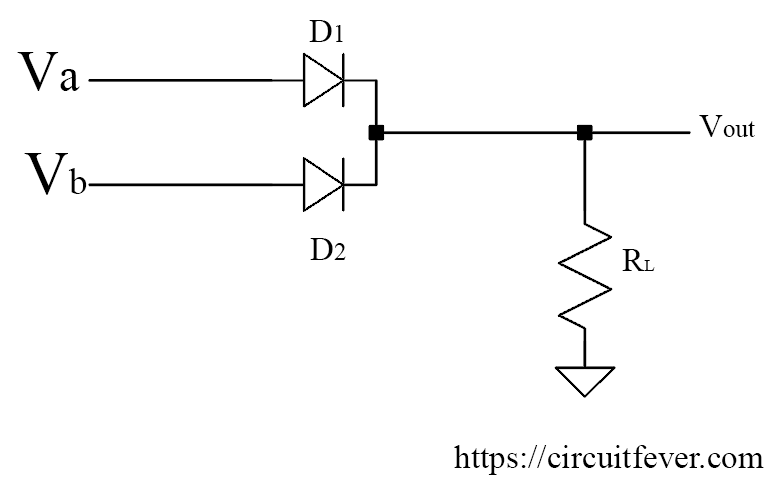What is the purpose of a resistor in an OR gate? Isn't it useless since the gate works even if the resistor is absent?
$\begingroup$
$\endgroup$
5
-
$\begingroup$ Would Electrical Engineering be a better home for this question? $\endgroup$– Qmechanic ♦Commented Dec 7, 2020 at 14:05
-
$\begingroup$ @Qmechanic , too simple for Electrical Engineering : physics.stackexchange.com/q/17915. $\endgroup$– Alpha DeltaCommented Dec 7, 2020 at 14:16
-
3$\begingroup$ Are you certain it would work without the resistor? Without the resistor, what pulls the output down to logic low level when both inputs are low? $\endgroup$– Alfred CentauriCommented Dec 7, 2020 at 14:16
-
1$\begingroup$ Relevant Q & A at EESE: Diode Logic Gates $\endgroup$– Alfred CentauriCommented Dec 7, 2020 at 14:26
-
$\begingroup$ @AlfredCentauri , thank you. $\endgroup$– Alpha DeltaCommented Dec 7, 2020 at 14:27
Add a comment
|
1 Answer
$\begingroup$
$\endgroup$
2
Answering my own question with a shout-out to Alfred Centauri for correcting me:
My mistake was considering no potential and $0$ V as same.
If resistor branch is absent then circuit would be incomplete when both input voltages are $0$. Thus there would be no output voltage. The presence of resistor and ground branch assigns $0$ V to the output voltage.
-
$\begingroup$ I believe it's called a pulldown resistor. $\endgroup$ Commented Dec 7, 2020 at 16:51
-
$\begingroup$ @nielsnielsen it is indeed. If both inputs are 0, the diodes will not be forward biased and will not conduct. The output will be floating without the pull-down resistor. $\endgroup$ Commented Dec 7, 2020 at 18:19

